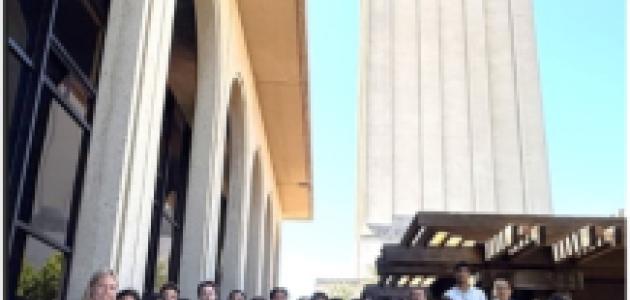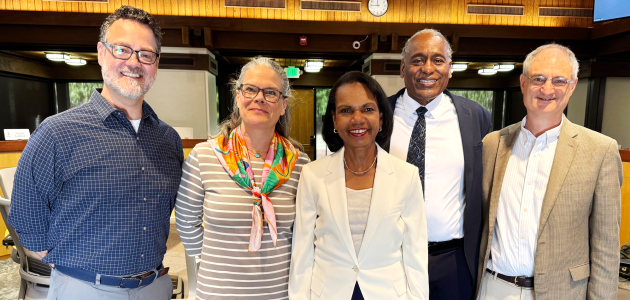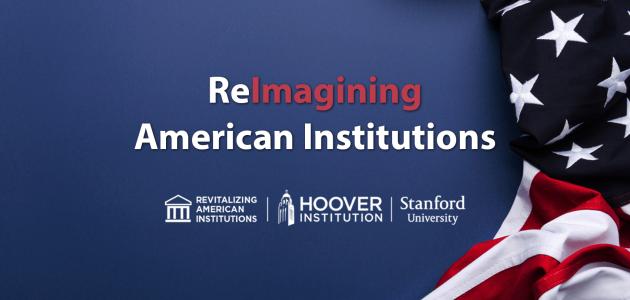In this edition of The Hoover Institution Briefing on Reforming K‒12 Education, Eric A. Hanushek releases new findings showing that maintaining cognitive skills into old age involves regular use. Thomas S. Dee reports on a computer science class specifically designed to increase uptake among underrepresented groups. And Paul E. Peterson and Michael T. Hartney observe that many red states show lower amounts of learning loss than blue states since school closures and pandemic measures ended several years ago.
Featured Analysis

Use It or Lose It: Cognitive Decline Prevented by Skills Usage
Writing in The74, Senior Fellow Eric Hanushek cites his team’s latest research about the cognitive decline of adults and how those who frequently use their literacy and mathematics skills can stave off declines until they are 65 or older. “Those with above-average [math or reading] usage never showed declining skills at least until age 65, when our data ended. Those who weren’t much using math or reading skills peaked in their early 30s,” he writes. The findings demonstrate the value of life-long learning, especially as the rise of generative AI changes how many people use their brainpower while at work. The team also observed statistically significant differences in numeracy and literacy declines between men and women.
Read more here.

New Computer Science Course Boosts Participation Among Underrepresented Groups
A news piece reports on a Stanford University study by Senior Fellow Thomas S. Dee and coauthor Daniela Ganelin, linking access to a new Advanced Placement (AP) course—Computer Science Principles—to an increase in student participation in AP testing, particularly among underrepresented groups such as women and students of color. The study highlights the importance of broadening access to computer science education to improve diversity in the tech field. It also underscores how introducing the AP course has led to a significant uptick in students enrolling in further computer science courses and pursuing related careers as they graduate and enter the workforce.
Read more here.

Comparing Learning Loss Between Red and Blue States
An article in Education Next by fellows Paul E. Peterson and Michael T. Hartney investigates disparities in learning loss across states using data from the National Assessment of Educational Progress. It finds that states with more conservative political leadership experienced less learning loss since the beginning of the COVID-19 pandemic compared with more liberal states. Comparing educational policies and their impacts during the pandemic, the authors argue for a deeper investigation into how differing state policies may have influenced these learning outcomes.
Read more here.
Highlights

Civic Learning Week National Forum Comes to Hoover
Civics educators, community leaders, and scholars gathered at the Hoover Institution on Thursday, March 13, for the iCivics Civic Learning Week National Forum to discuss how to strengthen civic learning in an era of increasing political polarization. Discussions centered on the dual imperative of expanding civic knowledge and fostering civil discourse. Presented by iCivics, the Hoover Institution, and Hoover’s Center for Revitalizing American Institutions (RAI), the day’s events emphasized the importance of ensuring that people of all generations have the knowledge, skills, and dispositions necessary to actively participate in America’s experiment with democratic self-governance. Senior fellow and RAI Director Brandice Canes-Wrone remarked on how civics instruction today appears to dwell less on educating pupils about how government actually works, and more about great moments in American political history and identity.
Hoover Institution Director Condoleezza Rice spoke with Utah Governor Spencer Cox about the role leaders play in setting the scene so young people can learn about the importance of civics and develop the practice of civil debate. Additional discussions and presentations featured other Hoover fellows, including Chester E. Finn, Jr. speaking about new ways to survey members of the public for their reflections on their civic knowledge, participation in their communities, and personal civic values.
Read more here.

Effects of the Indiana Choice Scholarship Program on Achievement and Graduation Rates
A scholarly article published by Visiting Fellow Anna J. Egalite and coauthor Andrew D. Catt in the Journal of the American Education Research Association examines school choice policies in the state of Indiana, which maintains one of the largest school voucher programs in America. They found that the introduction of the school voucher program, which included more than 70,000 pupils by the end of the 2023–24 school year, had no negative academic impact on those who remained in traditional public schools.
“Overall, we found no evidence that students in traditional public schools have been negatively affected by the enactment and growth of the [Indiana Choice Scholarship Program], as measured by their test-score outcomes or probability of graduating from high school,” Egalite and Catt write. “Furthermore, we found evidence of positive math effects for female students and positive [English Language Arts] effects for students with limited English proficiency.”
Read more here.
Interview

The Federal Role in Education, Outcomes v. Totems, and Union Clout
Speaking with Distinguished Policy Fellow Bill Whalen on the Matters of Policy & Politics podcast, Michael T. Hartney critiques the federal role in determining education outcomes, focusing specifically on the influence of teachers’ unions. Hartney argues that unions often prioritize political interests over educational effectiveness, potentially hindering student performance and achievement. He advocates for federal education policies that emphasize measurable outcomes and student success rather than accommodating teachers’ union demands. He suggests that union influence can sometimes detract from the goal of improving educational standards and calls for reforms that ensure educational policies are aligned with the needs of students and schools to enhance overall educational quality and outcomes.
Listen to the episode here.
Spotlight

Education Futures Council
The goal of Hoover’s new Education Futures Council is to review and analyze the state of public education in America. The Council recognizes that the future of our country—its security, prosperity, and social cohesion—rests on the certainty of providing every child with access to a high-quality education. The Council is diverse by design; it reflects a wide range of personal and professional life experiences that span the political spectrum. The Council’s first report, Ours to Solve, Once – and for All, outlines a new framework for revitalizing K-12 education across America.
Read more here.
For more insight on important educational issues visit www.hoover.org/focus-areas/reforming-k-12-education





















